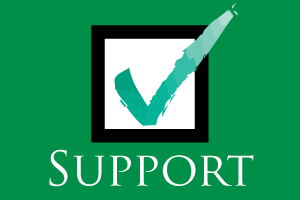Retaliation was once again the workplace discrimination claim filed most often, according to breakdowns for fiscal year 2016 recently released by the federal Equal Employment Opportunity Commission (EEOC).
Retaliation accounted for more than 45% of the 91,503 charges of workplace discrimination the agency received in fiscal year 2016.
The EEOC resolved 97,443 charges in fiscal year 2016—almost 5,000 more charges than the previous fiscal year. It secured more than $482 million for victims of discrimination in the private sector and state and local government workplaces through voluntary resolutions and litigation.
Of the charges filed with the EEOC in fiscal year 2016:
- Retaliation is the No. 1 charge with 42,018 (45.9% of all charges filed).
- Race charges came in second with 32,309 charges (35.3%).
- Disability charges took third with 28,073 charges (30.7%).
- Sex charges were a near fourth with 26,934 charges (29.4%).
Other Charges
The remaining discrimination charge statistics are as follows:
- Age: 20,857 (22.8%)
- National Origin: 9,840 (10.8%)
- Religion: 3,825 (4.2%)
- Color: 3,102 (3.4%)
- Equal Pay Act: 1,074 (1.2%)
- Genetic Information Non-Discrimination Act: 238 (0.3%)
These percentages add up to more than 100 because some charges allege multiple bases.
Harassment
In addition, claims of harassment made up more than 28,000 of charges received. Employees claimed harassment based on race, age, disability, religion, national origin and sex, including sexual orientation and gender identity.
Sexual harassment claims do not make up the majority of claims filed. Unlawful harassment can occur against individuals on other protected bases.
This is the first year that the EEOC has included detailed information about LGBT (lesbian, gay, bisexual and transgender) charges. The EEOC resolved 1,650 charges and recovered $4.4 million for LGBT individuals who filed sex discrimination charges with the EEOC in fiscal year 2016.
Moreover, the data shows a steady increase of LGBT charge data in the four years the agency has been collecting this information. From the 2013 through 2016 fiscal years, LGBT individuals filed nearly 4,000 charges alleging sex discrimination with the EEOC, and the EEOC recovered $10.8 million for victims of discrimination.
“EEOC advances opportunity for all of America’s workers and plays a critical role in helping employers build stronger workplaces,” said former EEOC Chair Jenny Yang. “Despite the progress that has been made, we continue to see discrimination in both overt and subtle forms. The ongoing challenge of combating employment discrimination is what makes EEOC’s work as important as ever.”
California Ranks Third
The EEOC also keeps track of the number of charges it receives by state. Texas tops the list with 9,308 charges— 10.2% of the nationwide total. Florida is next with 7,610 charges—8.3% of the nationwide total. Then comes California with 5,970 charges—6.4% of the nationwide total.
These figures aren’t surprising given the large populations of these states. Also, keep in mind that in California, employees also have another avenue for complaining of harassment, discrimination, and retaliation. Employees can file their charge with the California Department of Fair Employment and Housing instead of, or in addition to, the EEOC.
Retaliation Prevention
The EEOC recently issued its final Enforcement Guidance on Retaliation and Related Issues.
California protections against retaliation also are strong. New California regulations that took effect on April 1, 2016 make significant changes to employer obligations and emphasize the affirmative duty to prevent harassment, discrimination and retaliation in the workplace.
Training for supervisors on what constitutes retaliation and on a company’s policy against retaliatory practices is essential. Best practices also include carefully reviewing discipline and termination decisions that involve individuals who participated in a complaint of unlawful workplace conduct and consulting legal counsel.
California Chamber of Commerce members can learn more about what employee actions are protected in the HR Library’s Retaliation section on HRCalifornia.com.



